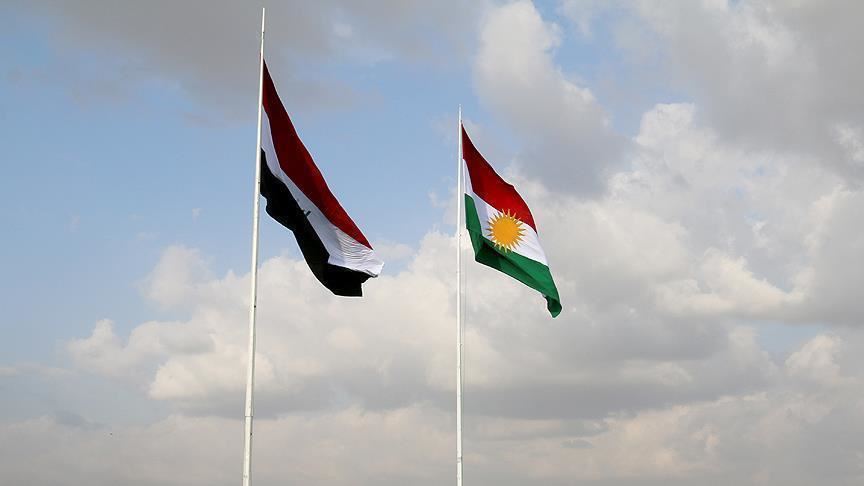The Democratic Bloc does not rule out boycotting the budget session in the event that differences over its paragraphs are not resolved
The Democratic Bloc does not rule out boycotting the budget session in the event that differences over its paragraphs are not resolved
2023-06-06 02:49
 Shafaq News/ The member of the Iraqi Parliament for the Kurdistan Democratic Party, Jay Taymur, did not rule out, on Tuesday, the party bloc boycotting the voting session on the country’s general financial budget in the event that the differences between Baghdad and Erbil over the paragraphs related to the Kurdistan Region are not settled.
Shafaq News/ The member of the Iraqi Parliament for the Kurdistan Democratic Party, Jay Taymur, did not rule out, on Tuesday, the party bloc boycotting the voting session on the country’s general financial budget in the event that the differences between Baghdad and Erbil over the paragraphs related to the Kurdistan Region are not settled.
The party’s representative, Jay Taymur, told Shafaq News agency, “In the event that a political agreement is not reached and the Parliamentary Finance Committee’s amendments remain, which are amendments that violate the constitution, and whose purpose is to target the Kurdistan region,” adding that “the KDP may boycott the voting session However, until now, no such decision has been officially issued by the party leadership.
And he indicated that “there are 48 hours before the voting session on the budget law, and it is possible during these hours to resolve differences over its paragraphs,” noting that “there will be vigorous efforts, in order to reach solutions before the voting session.”
The Iraqi parliament had set Thursday, the eighth of June, as the date for holding the voting session on the draft federal budget law for the fiscal years (2023, 2024, 2025).
And the Parliamentary Finance Committee voted on several amendments related to the Kurdistan Region, including an amendment in Article (13-Second-A), which stipulated the commitment of the Kurdistan Region to export at least 400 thousand barrels of oil per day, while this paragraph became after the amendment It stipulates that the region hand over the crude oil produced in its fields at a rate of no less than 400,000 barrels per day to the Ministry of Oil for export through the state company (SOMO), or for use locally in Iraqi refineries.
It is noteworthy that the Presidency and the Kurdistan Regional Government have recently objected to the amendments made to the paragraphs related to the region in the financial budget that the Iraqi Parliament seeks to approve, describing it as a violation of the laws, the constitution, and the agreements concluded between Erbil and Baghdad, which resulted in the formation of the current federal government headed by Muhammad Shia al-Sudani.
The President of the Kurdistan Region, Nechirvan Barzani, had expressed “deep concern” about what he called the changes that affected the paragraphs of the Iraqi general budget bill related to the constitutional rights of the Kurdistan Region, and said that he rejected them “completely.”
And before that, the Prime Minister of the Kurdistan Regional Government, Masrour Barzani, said, “A group in the Finance Committee of the Iraqi Parliament made changes to the draft federal budget, violating a prior agreement we concluded with the State of Prime Minister Muhammad Shia al-Sudani and his government,” noting that “the agreement that is the cornerstone For cooperation between Erbil and Baghdad, and everyone must respect its provisions.
And the Parliamentary Finance Committee recently voted to oblige the Kurdistan Region to pay 10% on a monthly basis from the salaries deducted to its employees, while this was included in the budget amendments that are being discussed.
A member of the Parliamentary Finance Committee, Mustafa Sanad, also confirmed the committee’s vote to amend paragraphs related to the region in the budget law, regarding its delivery of oil, while pointing to the withdrawal of the Democratic Party bloc representatives from the meeting.
And the Iraqi Council of Ministers approved, on the 13th of last March, the largest financial budget in the history of the country, which exceeded 197 trillion and 828 billion Iraqi dinars (about 152.2 billion dollars), with a total deficit of 63 trillion Iraqi dinars, taking advantage of the rise in oil prices globally. , which constitutes more than 95% of the country’s financial revenues, amid objections from financial and legal experts regarding the budget items, but it has not yet been approved due to disagreements.
shafaq.com
